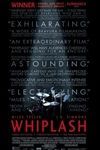Don't worrySpike, Michael Bay's got it more than covered... Just start making smart challenging films again.
Jointmaker: Almost 25 Years After Do the Right Thing, Spike Lee Releases His First "Film"

For all its nasty twists, the biggest shock in Spike Lee's remake of Park Chan-wook's Oldboy (opening November 27) hits in the movie's first minutes — during the credits. "A Spike Lee Film," a title card reads, a first for any of Lee's features. Jungle Fever, He Got Game, Inside Man, last year's underseen, micro-budgeted Red Hook Summer — those are all Spike Lee Joints. What gives?
"It's a hard business," Lee says in that gnomic way of his, wearing the imperturbable poker face he has developed despite a reputation for hotheadedness. Asked a question he's not eager to answer, Lee seems to shrug without moving.
It's not because this is a remake? Or because this movie doesn't have some of the social and political urgency we might expect from a Spike Lee Joint?
Related Stories
 BROOKLYN’S BESTJuly 2, 2014
BROOKLYN’S BESTJuly 2, 2014 Why You Should Spend a Day Eating and Drinking in Red HookOctober 10, 2014
Why You Should Spend a Day Eating and Drinking in Red HookOctober 10, 2014 Do the Right Thing Turns 25, and BAM Hosts the Block PartyJune 25, 2014
Do the Right Thing Turns 25, and BAM Hosts the Block PartyJune 25, 2014 Five Restaurants That Opened In NYC This WeekSeptember 5, 2014
Five Restaurants That Opened In NYC This WeekSeptember 5, 2014 A 'Classic Texas-Style with a Little Brooklyn Hipster' Makes for a Winning Chili RecipeNovember 17, 2014
A 'Classic Texas-Style with a Little Brooklyn Hipster' Makes for a Winning Chili RecipeNovember 17, 2014
More About
"It's a genre film," Lee says. "A subgenre film. A revenge drama. I've never made one before."
So it's not a joint because of that? Or because of some legal stuff with the credits?
Poker face. "It's a hard business," Lee says. And then: "My next film is a Spike Lee Joint."
That next one — Da Sweet Blood of Jesus — is the one he financed with $1.4 million scared up on Kickstarter. He won't say much about it, beyond his promise to his backers of blood and sex, but he does deny the rumors of its genre: "It's not a horror film, but there are things in it that are horrific."
In the almost 30 years since She's Gotta Have It detonated archaic ideas of whose stories belong on American screens, Lee has crafted epochal studio joints (Do the Right Thing, Malcolm X), daring screeds and curios (Bamboozled, Girl 6), indie marvels (Red Hook Summer), best-in-their-class documentaries (4 Little Girls, When the Levees Broke), the most moving tribute anyone has made to the late Michael Jackson (BAD 25), and an excellent series of filmed records of stage performances (Passing Strange, last week's riveting HBO debut Undisputed Truth, capturing Mike Tyson's one-man Broadway show, which Lee directed).
And now he has made a plot-driven remake, "a Spike Lee film" whose most exciting sequence is not some raw look at the harsh truths of American life. Instead, it's a doozy of a fight scene filmed in one dazzling long take. (Well, there is one cut, but chances are you won't spot it.) The battle suggests the performance-and- proscenium–minded technique of Lee's stage docs: a ripped Josh Brolin versus a platoon of bad guys on three separate floors of a warehouse, with Lee's camera observing from a steady remove, like a theatrical audience.
"In Park's film, it takes place on one level," Lee says. "Gotta do more than one!"
A unique and exciting sequence, one that plays more like a dance-centered production number than a traditional action sequence, this battle nevertheless represents a break with the rest of Lee's work. Year after year, joint after joint, the director has approached violence as a tragic waste, investing it with a moral weight rare in American cinema: Think of the death of Samuel L. Jackson's Gator in Jungle Fever, the city-shaking horror stirred up by Summer of Sam's .44 Caliber Killer, or the domino-ing calamities that gang violence wreaks in Clockers, Lee's sole entry in the drugs-and-projects crime genre — and a deeply undervalued joint in its own right. Lee even gave Clive Owen a crowd-pleasing jeremiad against bang-bang video games in Inside Man.
This fight, unlike the harder-edged torture scenes elsewhere in Oldboy, is almost . . . fun.
Lee disagrees. "I can't do it," he says of Hollywood's penchant for consequence-free action violence. "I can't do it. I can't do it. Violence has a very strange place in American society today. I can't do violence as a cartoon where you get shot, you get up again, and you get more points. Josh and I talked about how we were going to present the violence in this film: It could not be cartoonish. It had to be realistic. But it could not be gratuitous."
However it's classified, this Oldboy bears many of Lee's hallmarks, most notably his signature floating-along tracking shot, in which a usually worried protagonist seems to glide down a New York street. (Its best inversion: the glue-huffers in Crooklyn who literally spin upside down and keep right on gliding.) Lee has few peers when it comes to stirring empathy for troubled characters wandering a city — in an early sequence here, Brolin's drunk prick of a broker stumbles through the drizzle in a past-midnight Chinatown while Lee's camera bobs above his umbrella, dipping and rising like the unsettled liquor inside him. It's a perfect evocation of being adrift, a reminder that, at Lee's best, all his dazzling technique is marshaled in the service of getting us to feel along with the people onscreen.
Lee's empathy — and his ability to summon it from us — is likely the source of the greatest, dumbest controversy of his career, a controversy that's about to celebrate its 25th anniversary. In 1989, a clutch of white journalists and critics assailed the upcoming release of Do the Right Thing as a reckless provocation certain to inspire riots.
Now Showing
Find capsule reviews, showtimes & tickets for all films in town.
Around The Web
-
 Winter's Tale
Houston Press
Winter's Tale
Houston Press
-
 Llewyn Davis Turns Out to Be a Carey Mulligan-Terrifying Punk
Miami New Times
Llewyn Davis Turns Out to Be a Carey Mulligan-Terrifying Punk
Miami New Times
-
 Review: The Conjuring
New Times Broward-Palm Beach
Review: The Conjuring
New Times Broward-Palm Beach
Rotten Tomatoes Box Office Report
-
Penguins of Madagascar, $25.4 mil
-
Big Hero 6, $18.8 mil
-
Interstellar, $15.7 mil
-
Horrible Bosses 2, $15.5 mil
-
Dumb and Dumber To, $8.4 mil
-
The Theory of Everything, $5 mil
-
Gone Girl, $2.5 mil
-
Birdman, $1.9 mil
-
St. Vincent, $1.7 mil

Join My Voice Nation for free stuff, film info & more!

Now Trending
-
My Account
Log In
Join -
Connect
Facebook
Twitter
Newsletters
Things To Do App -
Advertising
Contact Us
National
Agency Services
Classified
Infographics
-
Company
Privacy Policy
Terms of Use
Site Problems?
Careers







































